Australia’s wealthiest female CEO Maxine Horne admits she’s driven by fear of failure
SHE’S Australia’s wealthiest female CEO – a multi-millionaire – so why does Brisbane-based Maxine Horne drive herself around in a ute?
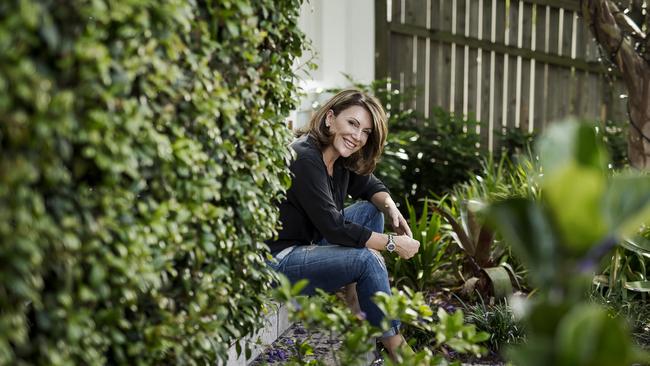
QLD News
Don't miss out on the headlines from QLD News. Followed categories will be added to My News.
Maybe a $10.5 million riverfront pad is your idea of success. Or perhaps being Australia’s wealthiest female CEO is, with a $89 million stake in the telecommunications business you built from scratch, and a ranking at No. 33 on BRW magazine’s Top 100 Executive Rich List.
But if you’re Maxine Horne, 53, you still won’t feel you’ve arrived. If you’re her, you’ll still feel the need to constantly prove yourself, despite the big house and the dosh. “I feel I constantly need to prove I’m worthy, and that has absolutely come from my childhood,” she says in a revealing interview on the publication of her autobiography. Written by journalist and broadcaster Madonna King, with all proceeds going to charity, Think Smart Run Hard doubles as a business leadership how-to book.
Horne and her ex-husband, David McMahon, founded Fone Zone (now Vita Group Ltd) in 1993, which operates 102 Telstra stores throughout Australia, with revenues of more than $600 million. Horne believes only two things motivate people: the craving for success, or fear of failure. “I don’t sit here thinking, oh, I want to be really, really successful. It’s more, I don’t want to be the person who comes last. I don’t want anyone to see me as a failure.”
Not much chance of that. This is a woman who, as a schoolgirl in Wales, refused to line up with the other kids getting free school lunches because then everyone would know her family received social security. So she snuck out the school gates instead, racing home to eat bread and jam before running back to school again. This is a girl who didn’t want to be labelled poor by wearing red socks instead of white (red socks hid the dirt and only poor kids wore them), so she saved up and bought herself five pairs of pristine white socks. She’d change out of the red socks before school and back into them before she walked in the door at home again.
In other words, this is a girl who grew into one fiercely determined woman, a woman who can’t stand being pitied. When McMahon left her in 2012 for his former personal assistant after a 23-year marriage and two children, Horne cried in private, dried her tears, and then went back to work. She was determined the experience was not going to break her. “The thing that shits me, everyone said, ‘Oh, you’ve lost all that weight since the divorce! You look great!’ And I said, ‘No, I lost it before the divorce, that wasn’t the trigger’. I chose to lose weight myself – I was in control of that – it wasn’t as a result of me being some broken woman.” She’s laughing now, but it’s clear this is a woman of steel.
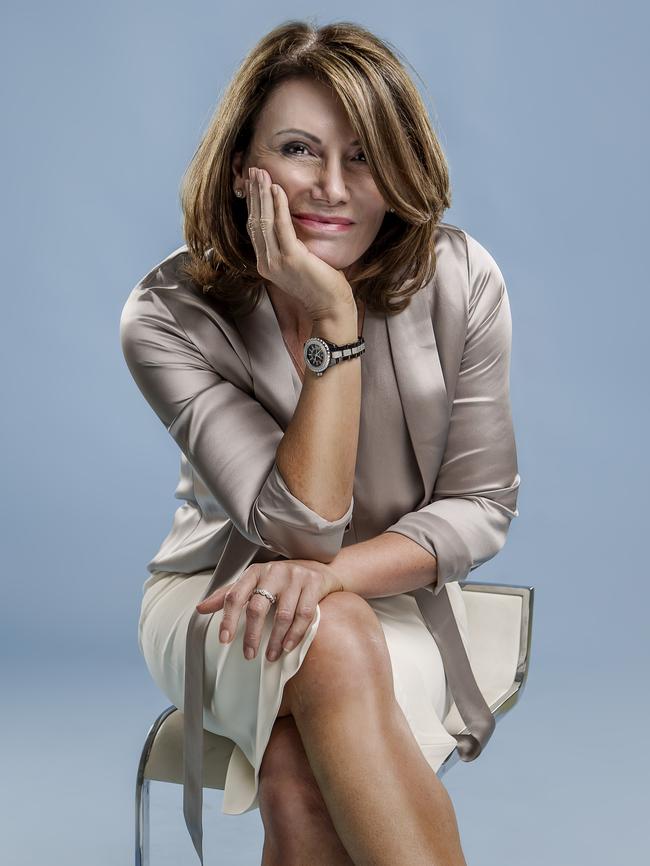
Horne, born in Ipswich, northeast of London, to warring parents who soon divorced, grew up on Struggle Street. If she can’t stand being pitied, she can’t stand being told “no”, either. “I’ve got that challenger mentality,” she admits. “The worst thing you can say to me is, ‘You can’t do that’. Oh, really? Why not?” When King’s literary agent was approached with an offer for her to write Horne’s book, it didn’t fit in with her plans. King decided to meet Horne to tell her in person that she couldn’t do it. “I went in to meet her and … came out with a deal, the first interviews planned, and ready to go. It’s very hard not to like (Maxine) – and she’s not easy to turn down.”
King says Horne’s greatest quality is her honesty. “There are a lot of CEOs who’ll tell you how good they are. Maxine’s been honest enough to say that it’s a skill that is learnt – and she’s worked long and hard to do that. The proof of her success is in the share price.”
Vita Group chairman and former Telstra group managing director Dick Simpson agrees, describing Horne as a “street fighter” and a “straight shooter”, one of the best chief executives he’s come across. Her most unusual quality – and possibly the one that distinguishes her from more ego-driven chief executives – is the same one noticed by King. “She’s prepared to acknowledge when she doesn’t know something. That’s a pretty unusual quality in somebody of her accomplishments. She’s got an ego, but the difference is she listens and she’s willing to adapt.”
Indeed, when Simpson was offered the chairmanship of Vita Group in 2009, he told Horne that he was reluctant to work with her unless she was willing to change some of her workplace behaviour. Horne admits to having a naturally blunt temperament and even to “being a bit of a mongrel” at times: behaving too emotionally, getting angry or dissolving into tears of frustration, even sulking. He suggested an executive coach and, because Horne was both smart and adaptable, she said she was happy to give it a go. Simpson says that in the years since “she’s definitely come up with the goods”. Horne is now in full control of her emotions.
So who is this street-fighter, this former“bit of a mongrel?” Her stepmother, Susan Horne, 63 – who was only 21 when she married Maxine’s late father, Malcolm, when Maxine was 11 – says she was always feisty. “But she was always a really nice girl. Teenagers get up to a bit of mischief – they all do – but Maxine wasn’t really that outrageous,” she says in her soft Welsh accent. Malcolm, a gasfitter, had a lot of different jobs from working on oil rigs in the North Sea to installing central heating to doing odd jobs. For a while he and Susan ran a pub in the little town on Caerphilly in South Wales.
Before she went to live with her dad and new stepmother at 11, Horne had spent most of her life living with her paternal grandparents – Rose, a cleaner, and George, a carpenter – in Ipswich. Her mother, Patricia, struggled to keep her head above the poverty line. “It must have been hard for her,” says Susan. “Your parents break up and your dad has moved away from England to Wales for work, he meets me, we get married. It was quite tough for Maxine, I suppose, moving across the UK, changing schools, just at that time when everything feels bigger.”
According to Horne, she was “a real shit of a teenage kid. I knew it all, I was really into my music and running away most weekends to go and see bands. I was 13 or 14!” But Susan doesn’t remember it that way, although she believes Horne’s parents’ acrimonious relationship and divorce and the moving away from her much-loved grandparents unquestionably “built up a toughness in her”. Horne credits them with influencing her attitudes in many things: in being honest, acting responsibly and taking part in your community, but most especially in careful financial management. She watched her grandparents squirrel away savings – despite their meagre income – and it was a lesson she never forgot.
Susan says her stepdaughter’s always been good with money. “She’s very organised, she knows where she wants to be, and where she’s going,” she says. Today, the two are very close and regard each other as mother and daughter – in 2000 Malcolm died unexpectedly, aged 59, and a couple of years later Horne suggested to Susan that she move out to Australia. Now they live a five-minute drive apart and Susan works for the Vita Group in retail support.
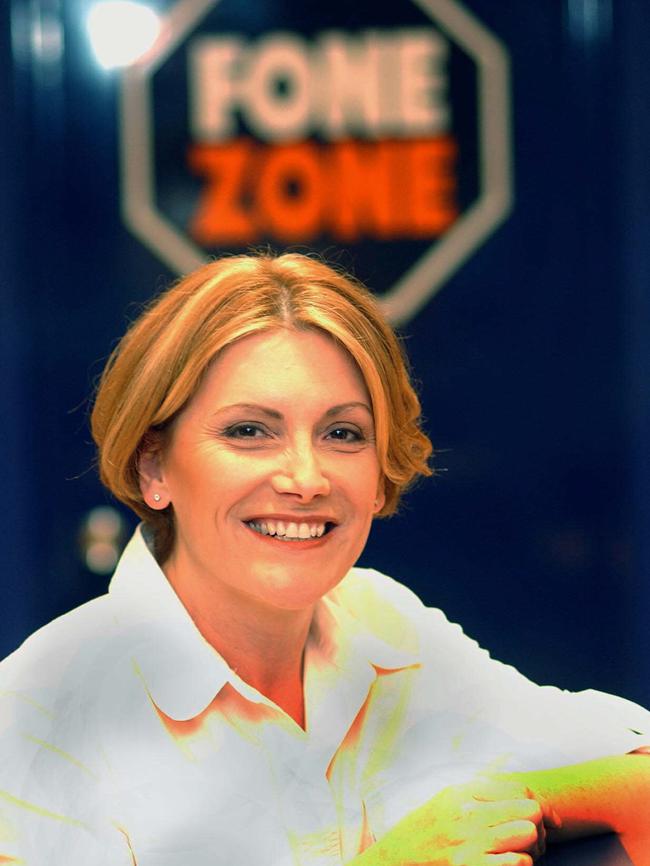
After leaving school in Wales, Horne got her first job at Barclays bank in the town of Bargoed, in the country’s south, where she made a name for herself as the first management trainee who refused to make the tea. She believed it was fairer to have a roster instead – and won what, in retrospect, was probably her first workplace battle.
From Barclays, Horne moved to Mercury Communications, to a job selling Mercury over British Telecom, a move that brought her into the emerging telecommunications industry – within 18 months she was promoted to regional sales manager. Horne had found her passion – sales and telecommunications – and it was while at Mercury that she met fellow salesman David McMahon, whom she married in 1990. It was the heady days of pagers and the early days of mobile phones – and Horne and McMahon were in exactly the right place at the right time.
Their luck got better: on a stopover in Brisbane on the way to a holiday in New Zealand, Horne fell in love with the city where she would make her fortune. The couple moved to the Queensland capital in 1992, securing jobs as salespeople with telecoms. Soon after, Horne and a colleague began wondering why the focus was onselling handsets rather than offering a service, which connected mobile phone users to a network, allowing customers to keep the same phone and number. Horne and McMahon opened a small office – with two business partners who soon left – but both kept their other jobs, just in case.
It was soon clear they were on to something: money poured in. Then, on a trip home to England, the couple noticed mobile phones were suddenly everywhere and no longer high-end business tools, and Horne had a brainwave. Instead of an office, why not a retail store, in a shopping centre? Their first store opened at Pacific Fair on the Gold Coast. By January 1995 – two years after starting the business – they signed an exclusive deal with Telstra and rebranded as Fone Zone. By 2004 – numerous retail and business awards later – Fone Zone opened its 100th store at Hornsby in Sydney.
Earlier this year, Vita Group Ltd extended its licence agreement with Telstra to 2020. Revenue growth at the 123 Telstra shops and Telstra Business Centres controlled by Vita Group is stronger than ever.
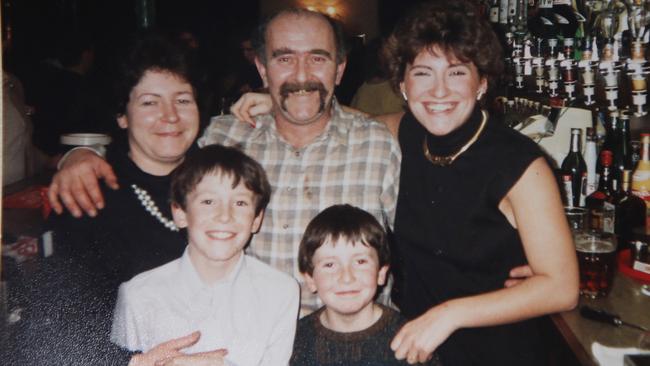
In between running a multimillion-dollar business, Horne and McMahon had two babies. Their first child, Jack, was born in 1995, just days before the business signed its first dealership agreement with Telstra. Horne was supposed to take time off work: she lasted exactly six days. Daughter Grace came along in 1999 (and is now finishing her final year at All Hallows’ School in Brisbane’s Fortitude Valley, hoping to study marine science). Horne credits having children with the development of her company’s commitment to creating a good company “vibe”: benefits, including flexible working hours, have long been a feature.
“I know most of the people in this building,” Horne says of the company premises, opposite Albion railway station in Brisbane’s inner north. “Every morning I park the car and come up (in the lift) from the basement. When the lift stops on the ground floor and (people) see me, you can see them thinking, should I get in or wait for another lift? And I go, ‘Come on in!’ And if I haven’t been introduced to them I say, ‘So, who are you and where do you work? I’m Maxine,’ and some of them go, ‘Oh! Maxine!’ And I say, ‘Yep’.”
This is a boss who doesn’t stand on principle, and never forgets where she came from. She admits she had a bit of a wobble after the business was floated. “I lost my sense of purpose,” she says with the benefit of hindsight. She was 41 years old, financially set for life, with more money than she had ever dreamt of (Horne and McMahon’s stake in the group fell to 45 per cent on public listing on the ASX in 2005, but delivered the couple a cool $30 million). “Look, people work for a variety of reasons – for purpose, mastery, autonomy – and I lost my sense of purpose. I’d had this goal and we’d achieved our goal, we’d grown the business, we’d taken a significant amount of money off the table, we were set for life and I kind of thought, well, what now?”
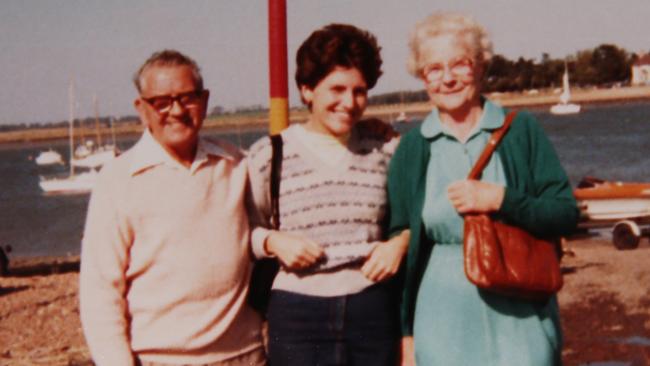
She says partly it was because she found it difficult to report to a board: “Just think about it – up until then I’d been the kingpin, then all of a sudden I had a board to report to, and I found that extremely challenging … I thought, hang on, I got the company to this position, surely I’m doing something right? Why are they questioning everything?
“It took me a couple of years to realise that where I was embedded in the business – and knew how it worked in detail – (the board) only saw the business one day a month, so there were a lot of things I just took for granted but which they had to question, because that’s their role.”
Slowly, Horne got her mojo back. She thinks she’s hardwired to be focused on something; right now she’s fired up about a new men’s health and wellbeing concept store, with merchandise and mind-body care, which Vita Group is backing, as well as being involved in various charity groups.
Both her children still live at home (in inner-north Brisbane – the new riverside house is rented because Grace did not want to move home in the middle of Year 12). Jack, now 21, is doing a Bachelor of Commerce, and there have been no family holidays for a while because of university and school exams. Normally there’d be a couple of trips a year and Horne admits to getting fidgety because she loves travel and can’t wait for the Christmas trip to Aspen and New York.
So why a book? “It’s been something in my head for the past 10 years. How it started was when people joined the business, I’d give them a bit of history, because I think it’s very important to respect history. There are bits that are very, very successful, but there were also mistakes made, and lessons learned – and all of that makes you who you are, whether you’re a business person or a human being.
“So it just got to the point where I’d be spending all my time telling new people the story. I thought, I have to write a book! I had a couple of goes at penning it myself but I never got past the first chapter – and then the business started getting really busy and I just didn’t have time.”
It was probably the breakdown of her marriage that was the spur. Horne’s friend Bronwyn Kinloch, who met her when Kinloch’s daughter Hope became friendly with Grace in Prep, says she loved her friend before her divorce, but she loves her even more now. “She kind of faked it till she made it … there were some days when she didn’t want to get out of bed but she dragged herself out, and went to the gym. You’ve got to admire that; she’s so bloody-minded, she wasn’t going to let that define her. And it didn’t – she’s been through such a journey and it’s so wonderful to see her shine.
“She’s down to earth even though she’s got buckets of money. I mean she’s stupid generous but she appreciates everything she has. You know what she’s like? She bought herself a ute. I run into her one day and there she is, in a ute. I said, ‘Why?’ and she says, ‘So I can go to the tip!’”
That’s the kind of woman Horne is: multi-millionaire, friend, mother, ute driver. She might be the chief executive but she also wants to take her own rubbish to the dump. ■
Think Smart Run Hard: Lessons in business leadershipfrom Maxine Horne by Madonna King, XOUM Publishing; all proceeds to Act For Kids


